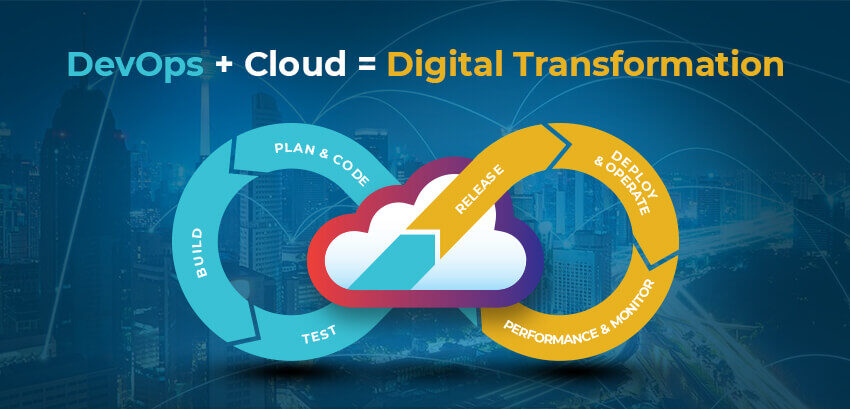Introduction
DevOps is a combination of software development and IT operations that bring together people, process, and technology. It helps organizations improve their agility by bringing together developers with operators who are responsible for keeping the systems running. It also enables organizations to deliver better quality software faster by automating the delivery process from development through deployment to production. Finally, DevOps supports continuous delivery – which means that products are continuously released into production – and continuous integration – which means that code is constantly checked into the same repository as the master version of the product. These two practices help ensure that products are always up-to-date and bug-free.
What Does The Future Hold For DevOps?
DevOps is an important trend in the software development world, and it has a lot of potential for growth in the future. DevOps is a combination of two different software development practices: Dev (development) and Ops (operations). DevOps involves working closely with developers to improve communication and collaboration between the two groups, while also ensuring that the code is always stable and reliable. The DevOps Training in Hyderabad program by Kelly Technologies can help to develop the skills needed to handle the tools and techniques associated with DevOps.
There are many benefits to implementing DevOps culture in your organization. For one, it can increase efficiency and productivity by reducing the time needed to deploy new code. It can also help to reduce the risk of errors by automating many common tasks. Additionally, it can help to reduce the time needed to troubleshoot problems or resolve conflicts. In addition, DevOps helps to create a more agile environment where changes are made quickly and easily.
One of the most important aspects of DevOps is automation – everything from configuration management to testing needs to be automated as much as possible in order for things to run smoothly. This allows you not only speed up your workflow, but it also reduces mistakes and increases reliability. Additionally, cloud-based technologies like containers and microservices make using automation even more powerful because they allow for easy deployment across multiple environments.
DevOps monitoring capabilities are also becoming increasingly important as organizations move towards digital transformations. These tools allow you to track all aspects of your systems in real-time so that you can identify issues early on before they become major problems. Moreover, being able to monitor systems continuously allows you spot any changes that might impact performance or availability before they cause any negative consequences. Finally, AI technology has started playing an increasingly important role in both devops planning and execution – making sure that everything is done efficiently while taking into account customer needs too!
How DevOps Will Impact Business And Technology Now And In The Future
DevOps is quickly becoming one of the most important technologies in business today. In this section, we will explore what DevOps is, why it’s so important, and the impact that it’s having on business and technology.
First, let’s define DevOps to understand exactly what it is and why it matters. DevOps is a collaboration model between developers and operators that aims to speed up software development by improving communication and collaboration between these two groups. By doing this, DevOps helps to reduce the time needed to deploy new applications or update existing ones.
As you can see, DevOps has a lot of importance for businesses of all sizes. It’s essential for companies that need to keep up with the latest technological advances – whether that be in the tech industry or elsewhere – and it has also had a big impact on business technology in general. For example, one of the biggest benefits of DevOps Training in Hyderabad is that it helps to reduce development times by speeding up the process of creating new applications or updates. This has led to major improvements in apps like Uber and Airbnb which have been able to rapidly expand their services due to their constant innovation.
There are also many other benefits associated with DevOps including increased reliability and security, better communication between teams, reduced waste due to rework due to miscommunications, as well as improved agility through faster feedback cycles. All these benefits have had a significant impact on businesses across all industries – from retail to healthcare – which means that there’s plenty of room for growth with this technology moving forward.
However, despite all its advantages, there are still some challenges facing organizations who want to adopt DevOps successfully. For example, companies who are used to working in traditional IT models may find it difficult adapt their current processes when taking on a devops approach. Additionally, there are tensions present when adopting an agile software development method alongside more traditional methods such as project management or waterfall design processes (although these tensions are starting to disappear). Ultimately though, adoption of DevOps represents a massive shift in how businesses operate; so any organisation willing make the leap will be rewarded with huge benefits down the road!
To Conclusion
This article in the Web Guest Posting must have given you a clear idea of the DevOps is a powerful tool that can help businesses of all sizes increase agility, reduce costs, and improve quality. By automating manual processes, DevOps enables companies to become faster, more efficient, and more reliable. While there are some challenges associated with adopting DevOps principles, the long-term benefits far outweigh any short-term inconveniences. Industries such as software development, IT services, and healthcare have already seen great success with DevOps practices, but the potential for increased efficiency extends far beyond those sectors. With the continued rise of cloud computing and automation technologies in many industries around the world, it is likely that DevOps will remain an important part of today’s modern business landscape.
